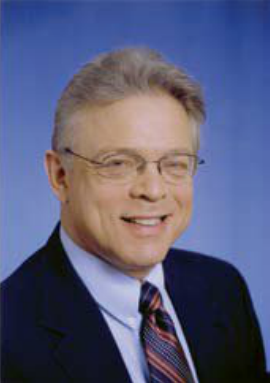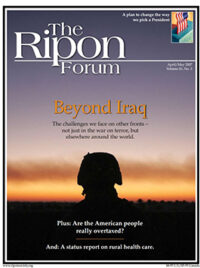
Reforming the United Nations is a Sisyphean task. In the wake of the oil-for-food scandal and the blow-up in the U.N. Security Council over the invasion of Iraq, Kofi Annan appointed a High Level Panel on Threats, Challenges and Change with a mandate to recommend far-reaching adjustments. Much of its report was then incorporated into Mr. Annan’s own proposals, In Larger Freedom, released in the run-up to the 2005 U.N. summit. That meeting was intended as a watershed of institutional reform. Although the U.S. administration and the U.N. Secretariat had been at logger heads over Iraq and other issues, the two were largely on the same page regarding U.N. reform.
The goal of U.N. reform was not new. Professor Edward Luck, the former head of the United Nations Association, spoke of the “déjà vu nature of U.N. reform,” noting that “before the U.N. could hold its first meeting, a number of states were already calling for its reform.” But although reform measures have been adopted over and again, they have made little difference. For example, in 1993, a General Assembly resolution on “Restructuring and Revitalization of the United Nations in the Economic, Social and Related Fields” invoked in its preamble no fewer than fifteen previous resolutions toward the same end. In 1994 the United States exerted what our ambassador to the U.N., Madeleine Albright, called an “enormous diplomatic effort” to secure the creation of something called the Office of Internal Oversight Services. Its mandate was to assure transparency and accountability. And yet the oil-for-food shenanigans began two years later. In other words, when that scandal unfolded, the U.N. had already been thoroughly reformed!
The litmus test of the latest round of U.N. reform was human rights. Rarely if ever has the U.N. been so self-critical as Secretary General and his High Level Panel in assessing the record of the U.N. Commission on Human Rights, which Mr. Annan said had performed so poorly as to cast “shadow” over the U.N. as a whole. For years the commission had refused to breathe a word of rebuke to most of the world’s worst tyrants, while gently chastising a few offenders, usually of the second rank, and then saving most of its fire for Israel. So bad had this gotten that Annan proposed the radical measure of abolishing the commission entirely and replacing it with a Human Rights Council. This was to be designed in a different format in order to assure that it would turn out to be more faithful to its purposes than the commission had been.
It [the U.N.] has proved helpless to perform the primary function for which it was created, namely to protect mankind from ‘the scourge of war”
Both Annan and the U.S. were disappointed in some of the provisions for structuring the new body, but both hoped for the best. Now, after its first year of operation, the Council’s record has turned out to be even worse than that of its forerunner. How many states were criticized for their violations of human rights? Exactly one: Israel, of course. And it was criticized at every session. Meanwhile, not one of the world’s tyrants or terrorists was called to account.
In short, the record shows that the U.N. will not improve with reform. And the problem is not only its performance on human rights or its management and bookkeeping. It has proved helpless to perform the primary function for which it was created, namely to protect mankind from “the scourge of war.”
So what are we to do? Abolish the U.N.? We are powerless to do that. Few others would go along with such a proposal. To suggest such a move would bring down obloquy on the U.S., something we already have more than we need. The same would be true were we to withdraw from the U.N. or push its headquarters out of New York.
Rather a sound plan for managing the disappointing record of the U.N. would consist of two main parts. First, we should help to strengthen those few functions that the U.N. has shown it can do well. Second, we should nurture other international institutions that may better achieve some of the things that the U.N. does not do well.
Of the things the U.N. does well, one is post-conflict peacekeeping. This is a less demanding mission than wading into a civil war to suppress the fighting or stopping a war between states. Instead, it arises when the parties to a conflict are ready to settle their dispute, but each distrusts the other. A U.N. force that can patrol ceasefire lines, collect weapons, verify to each side that the other is keeping its commitments, launch relief efforts, and the like can be the critical factor that allows a settlement to take hold. The U.N. has done this in Cambodia, East Timor, Namibia, El Salvador, and a number of other places. This is a more modest role than the U.N. founders envisioned, but it is important.
Another area of strength is the work of some of the U.N.’s specialized agencies, for example the World Health Organization. Assistance to the very poor, to refugees, to women and children demands our concern and our generosity, and often U.N. agencies are the best vehicles for this.
For more political functions, that ones at which the U.N. is generally a failure, the alternative is not to go it alone. Rather it is to seek smaller and sometimes less formal international mechanisms.
The main purpose of the U.N. was to prevent a third world war which the founders feared might follow the second just as the second has followed the first, and they imagined its cockpit would be Europe. The Cold War, however, paralyzed the U.N. from the start. What did prevent a third world war from breaking out in Europe was a different organization, NATO. It came into being accidentally, having been conceived simply as a treaty. The strengthening, enlargement and adaptation of NATO holds much promise for he future; and so may other regional organizations. In addition, the embryonic Community of Democracies might be developed into a more purposeful alliance that might play an effective role in the advancement of global human rights.
Finally, ad hoc coalitions of small numbers of states are ordinarily more effective at crisis management than an organization of 193 members. In practice, we look to the Quartet to work on the Israel-Palestinian problem; the Five Plus One to deal with the Iranian nuclear issue; and the Pacific Six to negotiate the North Korean nuclear issue. In the 1980s the Contadora Group took the lead on the Central American crisis and in the 1990s, it was the Contact Group that wrestled with the Yugoslavia crisis.
Experience teaches that the formal structures of the UN are often a straitjacket while informal groups of states with common concerns, interests or values often can work more effectively.
The true alternative to relying heavily on the UN for political functions is not unilateralism. Rather, it is more flexible forms of international cooperation.
Joshua Muravchik is a resident scholar at the American Enterprise Institute and the author, among other works, of “The Future of the United Nations: Understanding the Past to Chart a Way Forward.”




